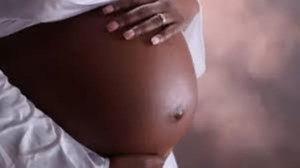Postpartum depression has been a topic of discussion in recent times with people, particularly women, wanting to know exactly what this means during pregnancy and after childbirth.
According to the World Health Organisation, globally, about 10% of pregnant women and 13% of women who have just given birth experience a mental disorder, primarily depression.
So, one may ask then, what is postpartum depression?
A Clinical Psychologist, Jude Richwell Menokpor, explains that “Postpartum depression is the mood changes that occur right after childbirth.”
Speaking to Daniel Oduro on the Lowdown programme on GhanaWeb TV, Jude stated that most women due to the 'agony' they go through during pregnancy, tend to have some form of stress after childbirth which causes them to have certain mood alterations.
“...so, with pregnant women who have gone through the rigorous journey of childbirth and bearing a child, they tend to have a form of stress and this stress, usually because they are not able to deal with these stresses, it causes them to have certain mood alterations and after the childbirth.”
How do you know that you have postpartum depression?
According to Jude, “If these mood alterations persist for two weeks, then the person can be said to have postpartum depression.”
Jude further stated that postpartum depression takes place as a result of the refusal of these women to take care of themselves, especially their personal hygiene, and their babies.
“...And it is also characterised by them not taking care of themselves; so the low mood comes with low attention to their hygiene, low attention to the children themselves, the babies that they have given birth to and they keep having this thought of worry and feeling that there is no hope for the future. Maybe they’ve lost interest in things that they usually had interest in, which is called the Anhedonia, which characterises postpartum depression,” he emphasised.
Adding to Jude’s submission, Priscilla Armah, also a Clinical Psychologist stated that women go through postpartum depression due to some hormonal changes that occur after childbirth.
“There are hormonal changes in women. The hormonal changes women go through and the physical changes too, and even the thoughts of adding a new person to your life; you are coming to take care of some new being, the stress, the thoughts about it alone puts them into that situation.
Asked if postpartum depression is common in Ghana, Priscilla responded in the affirmative that “so far, I have seen a lot.”
Watch the video below
VKB/NOQ
Watch the latest episode of Everyday People below:
Health News of Wednesday, 27 March 2024
Source: www.ghanaweb.com
Postpartum depression: A closer look at the challenges new mothers face
Find out why this used clothing seller has rejected several job offers | Everyday People
Find out why this used clothing seller has rejected several job offers | Everyday People
0 seconds of 10 minutes, 22 secondsVolume 90%
Press shift question mark to access a list of keyboard shortcuts
Keyboard Shortcuts
Shortcuts Open/Close/ or ?
Play/PauseSPACE
Increase Volume↑
Decrease Volume↓
Seek Forward→
Seek Backward←
Captions On/Offc
Fullscreen/Exit Fullscreenf
Mute/Unmutem
Decrease Caption Size-
Increase Caption Size+ or =
Seek %0-9













